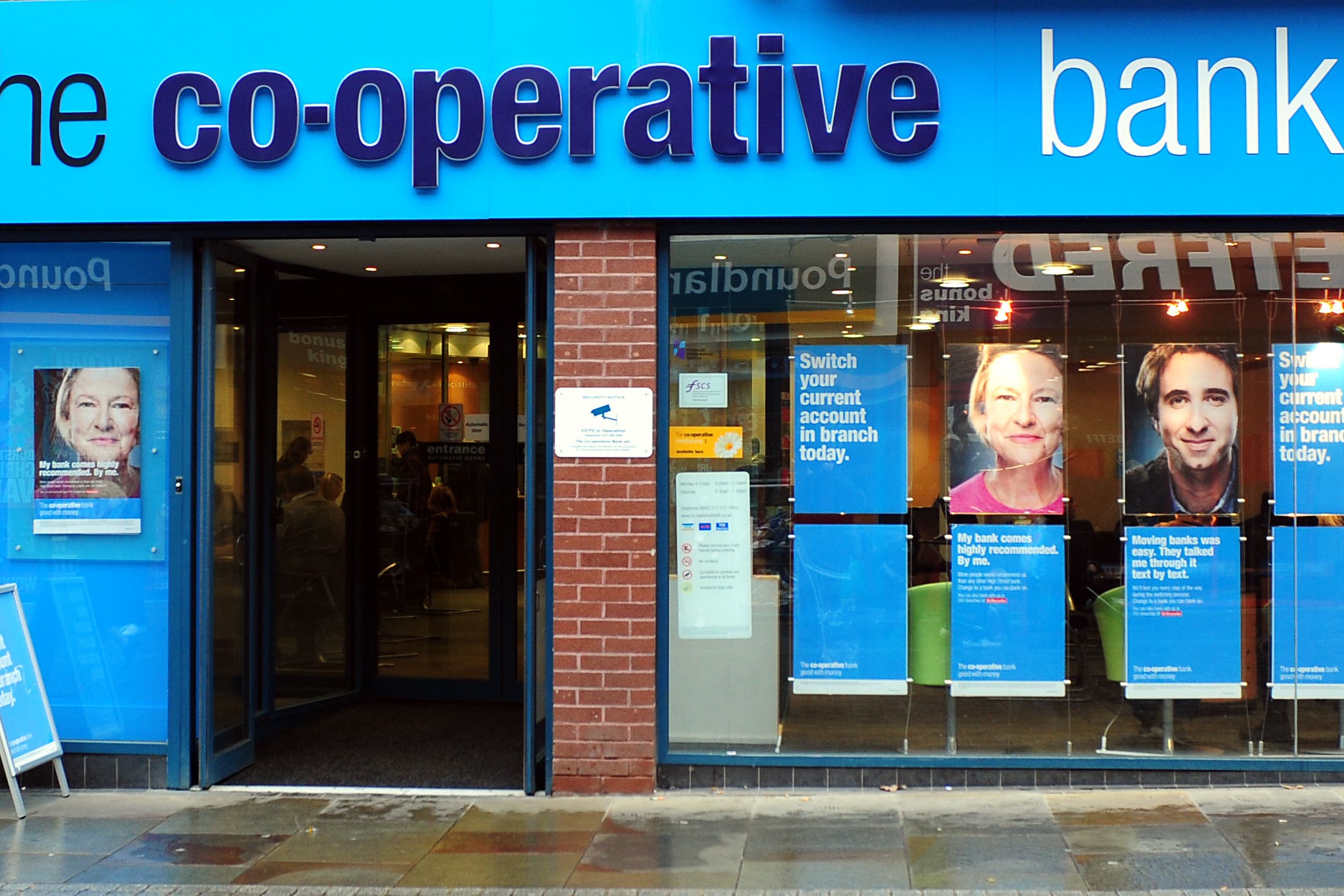Co-op Bank bolstered by higher interest rates as it hails turnaround progress
The once-flailing bank reported its seventh consecutive quarter of profits after being rescued by a group of hedge funds in 2017.

Your support helps us to tell the story
From reproductive rights to climate change to Big Tech, The Independent is on the ground when the story is developing. Whether it's investigating the financials of Elon Musk's pro-Trump PAC or producing our latest documentary, 'The A Word', which shines a light on the American women fighting for reproductive rights, we know how important it is to parse out the facts from the messaging.
At such a critical moment in US history, we need reporters on the ground. Your donation allows us to keep sending journalists to speak to both sides of the story.
The Independent is trusted by Americans across the entire political spectrum. And unlike many other quality news outlets, we choose not to lock Americans out of our reporting and analysis with paywalls. We believe quality journalism should be available to everyone, paid for by those who can afford it.
Your support makes all the difference.The Co-operative Bank has surpassed £100 million in profits after its turnaround plans gathered steam and higher mortgage rates boosted its margins.
The once-flailing bank reported its seventh consecutive quarter of profits after being rescued by a group of hedge funds in 2017, posting pre-tax profits of £103 million in the first nine months of the year.
Higher interest rates helped push up the bank’s income by 40% and increase its net interest margin, which lenders use to measure its returns versus its costs on loans.
Co-op Bank’s chief executive Nick Slape told the PA news agency that the bank has seen its profits bolstered by higher interest rates.
Other banks are much more exposed to unsecured lending. And the first signs of stress are usually seen in the unsecured market
He said: “It is very hard for banks to make money when interest rates are running at 0.1%, which they were for many years.
“Interest rates have now started to move up and steepen, and therefore you can get benefits from your customer base.”
He said that higher rates are the “real leverage” for lenders because they can generate earnings on the back of them.
But Mr Slape stressed that the bank has seen “no signs of stress” across its portfolios, despite mortgage rates ramping up in recent weeks and concerns that mortgage-holders will face much higher yearly repayments.
“Almost 100% of our lending is secured lending, so it is on property”, he told PA.
“Other banks are much more exposed to unsecured lending. And the first signs of stress are usually seen in the unsecured market.
“The last thing that people would want to walk away from is their home – where they live. So that is why we are not seeing signs of stress.”
We know we have about 4.5 to 5 billion pounds' worth of our mortgages are maturing next year, off of a rate of 2% on average, up to a rate potentially above 6%
But the bank is not “complacent”, he added, assuring that it monitors its customers’ credit data and stress-tests borrowers against a “rates shock”.
“We know we have about 4.5 to 5 billion pounds’ worth of our mortgages maturing next year, off of a rate of 2% on average, up to a rate potentially above 6%.”
Just 0.13% of the Co-op Bank’s accounts are greater than three months in arrears as of the end of September, and its average loan-to-value is 53% – meaning that the average customer needs to borrow about half of the value of a new home.
The bank set aside £1.3 million in impairment charges in the third quarter, which it said reflects changes in affordability as a result of cost-of-living pressures.
It also said it had reached a significant milestone in becoming fully capital compliant for the first time since 2013.
Mr Slape explained: “If you are not fully compliant, then the regulator can restrict you from certain things – you can’t distribute any of your hard-earned cash for things like dividends.
“It has taken a while for us to get to this point.”
The bank said it reflects its improved financial stability, and noted that is turnaround progress is ahead of schedule.
Mr Slape took on the chief executive role amid an overhaul of the group following a difficult period, which saw the bank nearly collapse before being saved by hedge funds.